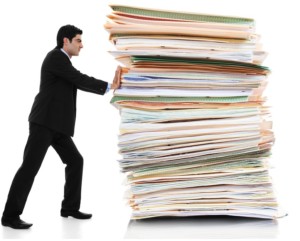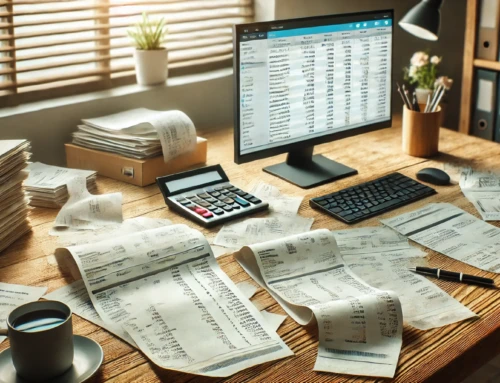Accsys Guide To – What Records To Keep (& for how long)

Our latest mission is to help all our clients get organised for 2018. As a part of this, we are encouraging clients to go paperless or at least less paper. See our blog last year There are no filing cabinets in my business
So we thought that a guide to what records you need to keep and for how long would be helpful.
Are Scans Acceptable?
We are always asked do I need to keep the originals of these documents or are scans acceptable?
The Short answer is yes electronic records are fine as long as they are:
- Legible
- Contained in an organised filing structure
- Backed Up
What about contracts?
Scanned copies of contracts are acceptable to courts as long as you have written evidence of the destruction of the original.
Company and accounting records
You must keep:
- records about the company itself
- financial and accounting records
Records about the company
You must keep details of:
- directors, shareholders and company secretaries
- the results of any shareholder votes and resolutions
- promises for the company to repay loans at a specific date in the future (‘debentures’) and who they must be paid back to
- promises the company makes for payments if something goes wrong and it’s the company’s fault (‘indemnities’)
- transactions when someone buys shares in the company
- loans or mortgages secured against the company’s assets
You must tell Companies House if you keep the records somewhere other than the company’s registered office address.
Register of ‘people with significant control’
You must also keep a register of ‘people with significant control’ (PSC). Your PSC register must include details of anyone who:
- has more than 25% shares or voting rights in your company
- can appoint or remove a majority of directors
- can influence or control your company or trust
You still need to keep a record if there are no people with significant control.
Accounting records
You must keep accounting records that include:
- all money received and spent by the company
- details of assets owned by the company
- debts the company owes or is owed
- stock the company owns at the end of the financial year
- the stocktakings you used to work out the stock figure
- all goods bought and sold
- who you bought and sold them to and from (unless you run a retail business)
You must also keep any other financial records, information and calculations you need to prepare and file your annual accounts and Company Tax Return. This includes records of:
- all money spent by the company, for example, receipts, petty cash books, orders and delivery notes
- all money received by the company, for example, invoices, contracts, sales books and till rolls
- any other relevant documents, for example, bank statements and correspondence
You can be fined £3,000 by HMRC or disqualified as a company director if you don’t keep accounting records.
How long to keep records
You must keep records for 6 years from the end of the last company financial year they relate to, or longer if:
- they show a transaction that covers more than one of the company’s accounting periods
- the company has bought something that it expects to last more than 6 years, like equipment or machinery
- you sent your Company Tax Return late
- HMRC has started a compliance check into your Company Tax Return
- Minutes of meetings and resolutions must be kept for at least 10 years from the date of the meeting to which they relate.
- Company registers should be kept for the entire life of the company.
If your records are lost, stolen or destroyed
If you can’t replace your records after they were lost, stolen or destroyed you must:
- do your best to recreate them
- tell your Corporation Tax office straight away
- include this information in your Company Tax Return
Where should I keep my company records and registers?
Unless otherwise notified, Companies House will assume all records are held at a company’s registered office address. If it is inconvenient to make certain records available for inspection at the registered office, a company may keep some or all of them at a Single Alternative Inspection Location (SAIL) address.
You must notify Companies House if you keep any statutory records at a SAIL address, and you must confirm which records are held there. Companies House should be notified immediately if you move any records, and you have to confirm their location whenever you file an annual confirmation statement
Insurance policies
Regarding insurance policies such as employers’ liability, you must publicly display your certificate for the duration of the period. If the certificate is not on display or you refuse to show it to Health and Safety Executive inspectors when they request to see it, you can be fined £1,000.
It’s not a requirement to keep certificates for out of date policies, however, if someone was to make a claim against you from e.g. 3 years ago, and you no longer have the relevant back-dated insurance details, you could be liable for any costs.






